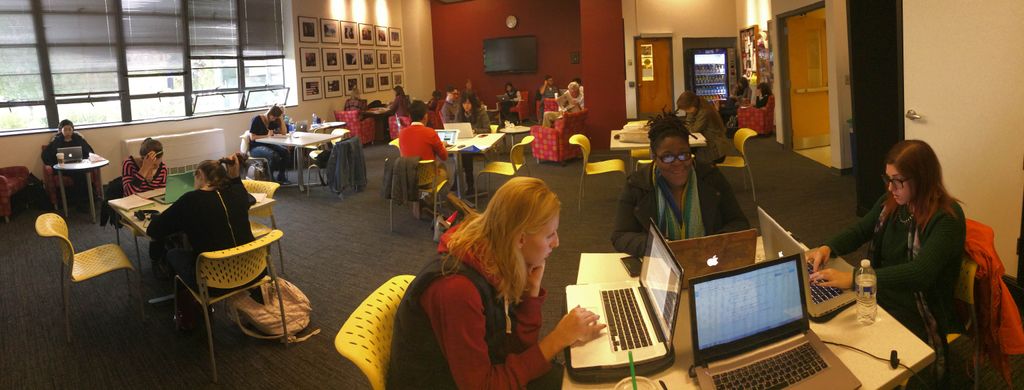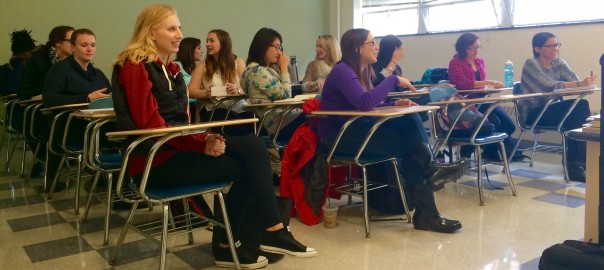By Ali Parisi
MS Public Relations ’16
BU College of Communication
What is public relations you ask? Writing.
As a first semester PR grad student, that’s at least how I see it. In fact, one of my favorite classes this semester has turned out to be Writing for Media Professionals with Professor Dorothy Clark.
In high school, if you had told me that I would end up loving writing, I would have flat out laughed in your face. Back then, the only type of writing we did was to analyze works of literature. And if you didn’t agree with the teacher’s analysis, you wouldn’t agree with your grade either. That type of writing was just not for me.
But this class is the complete opposite. Instead of writing to agree with someone else, I get to write for my audience (or, as we like to call them in PR, “publics”). I get to write things that I can actually use in the fabled “real world.”

For example, one assignment had us write a traditional news release. To simplify things, Professor Clark had us write about a made-up conference for which she provided all of the information and facts about the hosting organization. That way, we could focus on both prioritizing the information to fit the format of a news release and also on writing in the objective voice, typical of that writing format.
To make this assignment even more hands-on, we also had to do a second, social media version of the news release; honestly, had no idea what a social media news release was before this class, but everyone knows that social media is huge today, and online news is growing faster than traditional media. This assignment gave me a taste of both and helped me feel like I was actually learning something practical and applicable for my future career in PR.
Another assignment from this class, and easily my favorite so far, was to “create a blog with a focused brand for yourself” (straight from the syllabus). I really enjoyed this assignment because we were able to write about something that we are truly interested in, rather than being assigned a topic that we don’t care about. I chose to create a blog that focused on fashion from an athlete’s perspective. Check it out here (Note: keep in mind that I made this site for the assignment and therefore it may not be perfect! Meaning the social media links don’t actually link to anything, etc.).
Everything we do in this class is up-to-date and tailored to fit the demands of new media. Aside from the blog and news releases, we’ve also worked with Twitter, created a landing page for an event, and will be working on a feature and slideshow in the next few weeks. We’re always talking about writing online as being a portal to other information, writing in your voice versus a company’s voice, and more. Most of our assignments have second drafts, which gives us the chance to review and refine our work after getting criticism. I feel that this is extremely valuable for the real workplace, where editors are more likely to chop up your work and spit it back at you, demanding a re-write.
If all of my classes in grad school are as engaging and hands on as this one, I have a feeling I’ll be just fine.
Check out the video below of Alumna Sandra Frazier (’01) as she shares how the Public Relations courses she took at BU helped prepare her for working in the real world. Frazier is CEO of Tandem Public Relations in Louisville, KY.
Think you have better ideas for future PR assignments? Leave a note in the comments below!
Interested in BU’s College of Communication Public Relations graduate program? Ask us any questions in the comment section. Also, be sure to check out our program webpage for more information the various graduate programs we have to offer.
